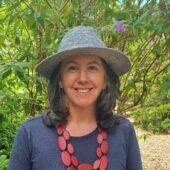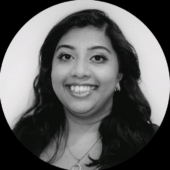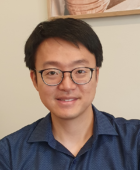
Therapists in Young, New South Wales NSW, Australia AU

Elizabeth-Brennan Holistic Soulscape
Counsellor/Therapist, Holistic Counsellor & Psychotherapist, Shamanic Practitioner/Healer, Transpersonal Coach, Holistic Ecotherapist
Hello! As a a Holistic Counsellor & Psychotherapist, Transpersonal Coach, Ecotherapist and Shamanic Practitioner/Healer, I have a passion for guiding people in search of deeper meaning and purpose in their lives and supporting the healing needed to live this fully. I have a professional background in Environmental and Outdoor Education and have held a range of leadership positions. My approach is an integrative one which draws on the wisdom from; ancient spiritual traditions, eco-psychology, positive psychology/wellbeing. process-oriented psychology and my leadership experience. I work holistically in honour of the interconnection between mind, body, spirit, soul and the natural world. I also bring the intention and belief that everyone has the capacity to heal, life a full and soul aligned life and have a meaning spiritual practice that aligns for them. I work with my clients from a strengths-based non-pathologizing orientation in honour of their unique soul and soul's journey. I have experience working with children and working in the disability sector.
Rashneel Prasad
Counsellor/Therapist, ACA, PACFA
Life's journey is marked by various transitions, and I'm here to provide dedicated support every step of the way. Whether you're navigating career shifts, adapting to new cultures, facing relationship changes, or coping with loss, I'm committed to partnering with you to tackle challenges with confidence and hope. As a registered counsellor, I prioritise your unique needs, whilst offering a nurturing space for self-exploration, healing, and personal growth.
I have an extensive background in corporate life, so I intimately understand the unique challenges faced by professional women, especially women of colour, and the intricate interplay of work/home-related issues. Having navigated the corporate world myself, I bring a deep understanding of the complexities and pressures inherent in these environments; such as: work/life balance, stress management, burnout and balancing multiple priorities. I’m also interested in assisting professionals who might be struggling in the pursuit of their careers while managing chronic medical conditions.
Giulia Fiore
Counsellor/Therapist
My name is Giulia Fiore, originally from Italy; I am now based in Sydney, Australia. Interested in human behaviour, mental health and theories of motivation, I have studied a Bachelor Degree in Public Relations, a Diploma in Counselling and a Bachelor Degree in Counselling Coaching. I now fulfil my life purpose of helping others improve their lives in my private practice.
Jacky Ho Yin Wan - Multilingual Psychologist
Psychologist, Clinical Psychologist AHPRA-registered
I am passionate about providing caring and compassionate psychological support that is tailored to clients with various mental health issues.
My expertise covers a broad range of presentations. These include adjustment difficulties to life transitions and work stress, anxiety disorders, depression, bipolar disorder, OCD, PTSD, personality disorders, self-esteem issues, and loss and grief.
I am particularly interested in how some of these issues might impact individuals in the workplace, and I offer support in relation to this.
I have a rich background in conducting clinical, diagnostic and neuropsychological assessments and delivering personalised psychological interventions. My research specialties also include addressing sleep problems and psychotic spectrum disorders.
I work with a variety of evidence-based therapeutic approaches including Schema Therapy, Acceptance and Commitment Therapy (ACT), Narrative Therapy, CBT, and DBT. With this range of approaches to draw from, I will tailor a treatment plan to suit my clients' specific needs to give them the best outcomes possible.
I hold a PhD in Clinical Psychology and have over a decade of experience in senior and supervisory roles. Having practiced in Hong Kong and Australia, I deliver therapy in English, Cantonese and Mandarin.
Shareen Birges
Registered Social Worker, BASS, GDYMH, MSW
My name is Shareen Birges & I am a social worker who specialises in online counselling. I have been practicing for over 15 years & as a result, have a broad range of experience. I have worked with adolescents & their families, adults & couples. I specialise in the care of people with cancer and chronic illness, mental health, dual diagnosis/comorbidity, trauma background (including sexual abuse/assault & childhood abuse and trauma) & people with offending behaviour & people living with BPD. Due to my extensive experience working with adolescents and young people, I have developed an ability to work closely with families & other professionals, whilst keeping the boundary of privacy & confidentiality. I believe I am approachable & create a good balance between challenging clients & allowing their therapy to flow at a pace that feel comfortable to them.





